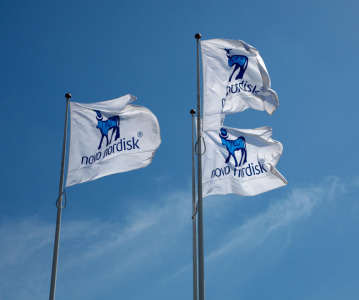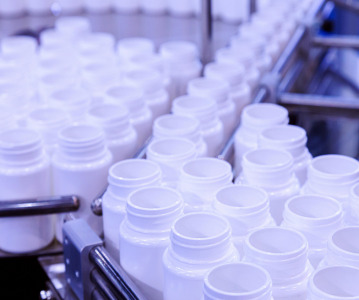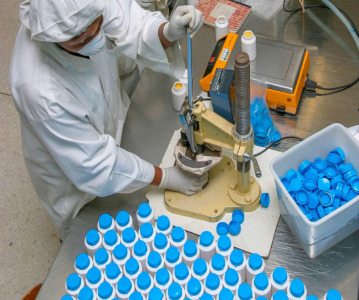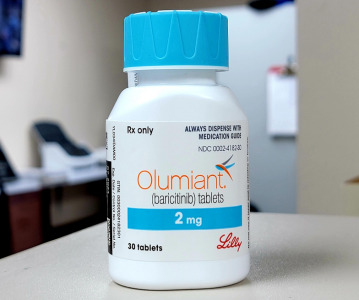$100 billion of revenues up for grabs for drug manufacturers as patents for key biologics expire

For success in the biosimilars sector, manufacturers must adopt QbD, DoE and PAT initiatives.
Although complexities inherent in biological drug manufacturing are creating barriers for further expansion of the biosimilars market, imminent patent expiries of key biologics are set to create new opportunities for biosimilar manufacturers, according to business intelligence provider GBI Research.
Adam Bradbury and Rishikesh Mandilwar, Analysts at GBI Research and co-authors of the company’s latest report, state that one of the key challenges biosimilar manufacturers face is the knowledge gap under which these products are developed. Indeed, the innovator product information remains proprietary, and manufacturers must adopt a reverse engineering process.
Mandilwar explains: “To be successful in the biosimilars sector, companies must adopt the latest technology and quality initiatives, such as quality by design, design of experiments and process analytical technology. They must also take a proactive approach in risk mitigation by compiling risk-management plans and adopting production best practices outlined by industry associations and regulatory agencies.”
A number of biologics are set to go off patent before 2020, which presents a huge opportunity for biosimilar manufacturers. Biologics have managed to leverage relatively high prices, with the average annual price currently $16,425 – more than 20 times the cost of small molecule drugs. However, it is increasingly difficult to maintain high prices. For example, in the UK, NICE has issued recommendations against a series of key drugs based on cost-effectiveness
.Pricing for biosimilars is usually 30–50% lower than the innovator product. These cost advantages will lead to greater access to these drugs, and significantly reduce the cost of healthcare in many countries. By 2020, $100 billion of biologics will be exposed to competition due to patent expiration.
Bradbury concludes: “The biosimilar pipeline is robust, and most products are being developed for the oncology and immunology therapy areas. Over 126 companies are currently involved in biosimilar development, which reflects the significant commercial potential that these products represent.”
Related News
-
News Women in Pharma: Moving beyond discussions and into best practice at CPHI Milan
In this second CPHI Milan special of our monthly series, we cover the key takeaways from the Diversity & Wellbeing track held on October 10, 2024. -
News AstraZeneca invests in AI collaboration for cancer drug trials
The British-Swedish pharmaceutical giant is partnering with biotechnology firm Immunai Inc to increase the efficiency of some cancer drug trials. -
News Ozempic and Wegovy prices questioned as Novo Nordisk faces US Senate hearing
The CEO of Novo Nordisk was grilled during a US Senate committee hearing on September 24, 2024, in which the exorbitant prices of the Danish company’s blockbuster drugs Ozempic and Wegovy were called into question. -
News The BIOSECURE Act: implications for the pharma supply chain
On September 9, 2024, the US House of Representatives voted to pass the bill titled the BIOSECURE Act (the Act), which lists several Chinese companies in the pharmaceutical supply chain. The Act will prohibit American companies from contracting or doin... -
News On Track at CPHI Milan: Thermo Fisher Scientific Track Sponsor interview
With CPHI Milan just around the corner, we sat down with some of the sponsors for this year’s conference tracks to discuss the most pressing topics in pharma. -
News CPHI Milan Speaker Spotlight: Pharma Manufacturing and Localisation in Africa
In the run-up to CPHI Milan, we sit down with some of the experts and thought-leaders speaking at this year’s conferences. -
News US BIOSECURE Act passed by US House of Representatives
The controversial act, which has already impacted several foreign companies operating in the US, was passed by the House of Representatives on September 9, 2024. It is now headed for the US Senate before it can be signed into law by President Joe Biden... -
News Eli Lilly licenses rheumatoid arthritis manufacturing in Africa
American pharmaceutical company Eli Lilly has signed a partnership with Egyptian organisation Eva Pharma to localise manufacturing of rheumatoid arthritis treatments in Africa.
Position your company at the heart of the global Pharma industry with a CPHI Online membership
-
Your products and solutions visible to thousands of visitors within the largest Pharma marketplace
-
Generate high-quality, engaged leads for your business, all year round
-
Promote your business as the industry’s thought-leader by hosting your reports, brochures and videos within your profile
-
Your company’s profile boosted at all participating CPHI events
-
An easy-to-use platform with a detailed dashboard showing your leads and performance

.png)





